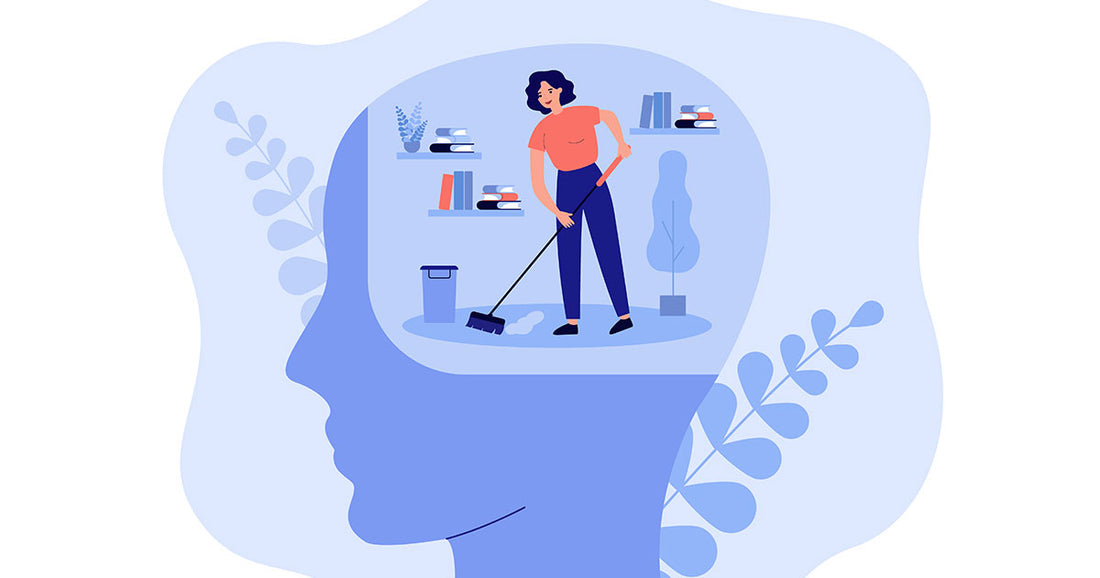
How to Detox Your Brain Naturally
Share

What is a brain detox? Many supplements are available to detox the brain, but doing it naturally is easier than you would expect. Learn more in this article!
![]()
This article has been medically reviewed by Dr. Charles Penick, MD 
How to Detox the Brain
A “detox” is the process of removing substances from the body that are considered toxic or damaging. Detoxification of the brain is not discussed as often as a traditional detox but is an essential component of maintaining good health.
What is a Brain Detox/Cleanse?
The Glymphatic System
Also known as the glymphatic clearance pathway, the glymphatic system removes harmful waste located in the central nervous system. It also helps distribute glucose, amino acids, lipids, neurotransmitters, and glucose in the brain. The majority of these actions are performed when a person sleeps: the glymphatic system is inactive when a person is awake.
What is a Brain Detox/Cleanse?
A brain detox is a process of removing waste products from the brain and nervous system. When in a deep sleep, the glymphatic system is activated and pumps cerebral spinal fluid through the brain. Toxins and other wastes are then flushed out, helping to detoxify the brain.
How to Detox Your Brain
There are several ways to remove waste and toxins from the brain. Here are a few of the top methods to detox the brain naturally:
1. Get Good Sleep.
The average adult needs 6-8 hours of sleep per night. A study on sleeping found that during a deep sleep, “the glymphatic system isturned on and that the brain clears itself of neurotoxic waste products produced during wakefulness” [1].
2. Healthy Non-inflammatory Diet.
Inflammatory diseases are often the result of oxidative stress. Fibromyalgia, Alzheimer’s, Crohn’s disease, Parkinson’s disease, and IBS are all examples of inflammatory diseases. Eating fruits, veggies, grass-fed meat, wild-caught fish, and other nutrient-dense foods can help detoxify the brain, decrease the risk of inflammation, and protect the body from free radicals. Turmeric has been used for thousands of years and has been growing in popularity for its nutritional benefits. It is also used as a brain detox: studies indicate curcumin (a substance in turmeric) could be used therapeutically to chelate toxic metals such as lead, potentially reducing their neurotoxicity and tissue damage. [2]
3. Exercise.
Exercise boosts blood flow to the brain, promotes new cell growth, and improves memory. It can also help enhance sleep quality, which could help the glymphatic system function more efficiently. Also, exercise might prevent or delay the loss of cognitive function associated with aging or neurodegenerative disease. [3]
4. Supplements.
Supplements that provide nourishment to the kidneys, gut, liver, and brain can help stimulate the body’s natural ability to detoxify itself. Popular supplements include probiotics, green tea extract, vitamin C, and L-glutamine.
5. Reduce Exposure.
Decreasing exposure to toxins is essential for brain health. There are several ways to reduce toxin exposure:
- Stop smoking
- Refrain from using drugs
- Op for organic beauty products and household cleaning products
- Limit use/exposure to pesticides and herbicides
Risks to Brain Detox
As the body removes various toxins from the brain, there may be a few side effects. Common reactions to a brain detox include the following:
- Headaches
- Irritability
- Muscle aches
- Nausea
- Cravings
- Fatigue
- Poor sleep
Side effects tend to cease after one or two weeks, but seeing a doctor is strongly advised if they persist. Before going on a brain detox, talk to a physician if suffering from kidney disease, diabetes, liver disease, or Alzheimer’s disease.
Final Thoughts
When a person sleeps, many harmful toxins and waste are removed from the brain via the glymphatic system. Getting adequate sleep could help alleviate many health issues, such as poor memory, brain fog, and decrease the risk of neurodegenerative diseases.
In addition to getting adequate sleep, other ways to detox the brain include getting exercise, eating nutrient-dense foods, and limiting toxins exposure.
Medical Disclaimer: This article is based upon the opinions of Revelation Health. The information on this website is not intended to replace a one-on-one relationship with a qualified health care professional and is not intended as medical advice. It is intended as a sharing of knowledge and information from the research and experience of Revelation Health and associates. This article has been medically reviewed by Dr. Charles Penick, MD for accuracy of the information provided, but Revelation Health encourages you to make your own health care decisions based upon your research and in partnership with a qualified health care professional.
